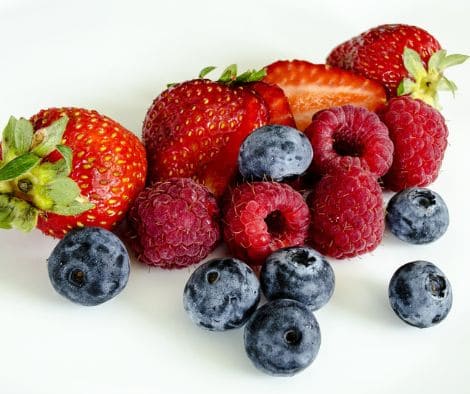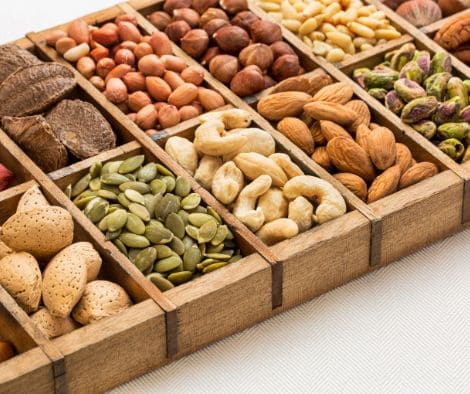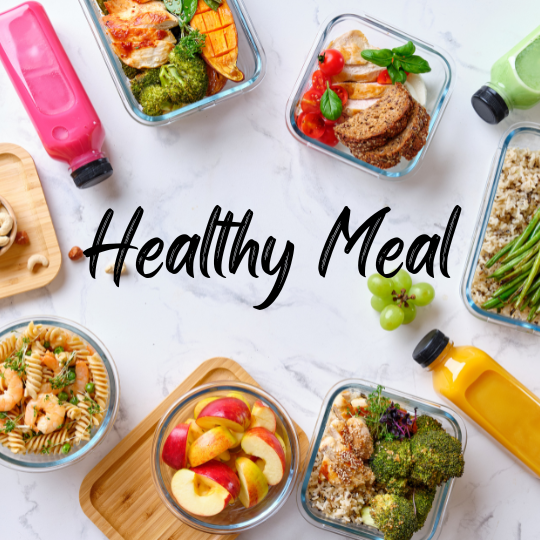
superfoods are loaded with nutrients, and including them in your diet may make all the difference in your quest for maximum health and vigor. Packed with vitamins, minerals, antioxidants, and other vital elements, these nutrient-dense powerhouses can promote general health and provide protection against chronic illnesses. This post will examine the realm of superfoods, revealing their advantages and offering advice on how to include them in your regular diet to reap the most health benefits.
Berries: Nature’s Rich Source of Antioxidants Antioxidants abound in berries, especially anthocyanins (found in blueberries, strawberries, raspberries, and blackberries), which have been demonstrated to have anti-inflammatory and anti-cancer effects. Including a range of berries in your diet can help strengthen cognitive function, improve heart health, and guard against oxidative stress.

Leafy Greens: The Ultimate Powerhouses of Nutrients Rich in vitamins, minerals, and phytonutrients, leafy greens such as spinach, kale, Swiss chard, and collard greens are nutritious powerhouses. They are especially high in calcium, iron, folate, and the vitamins A, C, and K. Including leafy greens in your meals can help maintain bone health, immunity, and general energy.

Nuts and Seeds: Snacks Packed with Nutrients Nuts and seeds rich in protein, fiber, and vital micronutrients, such as almonds, walnuts, chia seeds, and flaxseeds, are also great sources of healthy fats. Including a small amount of nuts or seeds in your diet on a regular basis can help lower inflammation, strengthen heart health, and encourage fullness and weight control.

Avocado: The Creamy Fruit That Protects the Heart The avocado is a special fruit that is highly valued for its flavor and creamy texture. It’s a great source of fiber, potassium, vitamins E and K, and heart-healthy monounsaturated fats. Avocado can help lower cholesterol, reduce inflammation, and promote the health of the skin and eyes when added to salads, sandwiches, or smoothies.
Fatty Fish: Protein Sources Omega-3 fatty acids, including EPA and DHA, are abundant in fatty fish like salmon, mackerel, trout, and sardines. These fatty acids are critical for maintaining heart and brain function as well as reducing inflammation. To benefit from these important fatty acids, try to incorporate fatty fish into your diet at least twice a week.

Legumes: Plant-Based Powerhouses of Protein Legumes are great providers of fiber, vitamins, minerals, and plant-based protein. Examples of legumes include beans, lentils, chickpeas, and peas. Legumes can help control blood sugar, decrease cholesterol, and improve digestive health when added to meals. Quinoa: The Adaptable Archaic Grains Quinoa is an ancient grain valued for its nutritional profile and adaptability that is free of gluten. It’s a great plant-based protein source for vegetarians and vegans since it’s a complete protein, meaning it includes all nine necessary amino acids. In addition, quinoa has high levels of fiber, vitamins, and minerals, including zinc, iron, and magnesium.
Dark Chocolate: A Treat with Well- Being rich in health advantages, dark chocolate with a minimum 70% cocoa content is a delectable treat. It has a lot of antioxidants, especially flavonoids, which have been demonstrated to strengthen the heart, lower inflammation, and boost cognitive performance. You may satiate your sweet desire and get more nutrients by sometimes treating yourself to a little piece of dark chocolate. In summary, superfoods are nutrient-dense foods that you can easily and deliciously incorporate into your diet to enhance general health and wellbeing. Including a range of superfoods in your meals can help you reach your health objectives, whether you want to strengthen your heart health, improve your immunity, or raise your energy levels. Discover which superfoods and recipes are most effective for you by experimenting, and then get the nutritional advantages of these nutrient-dense powerhouses.





